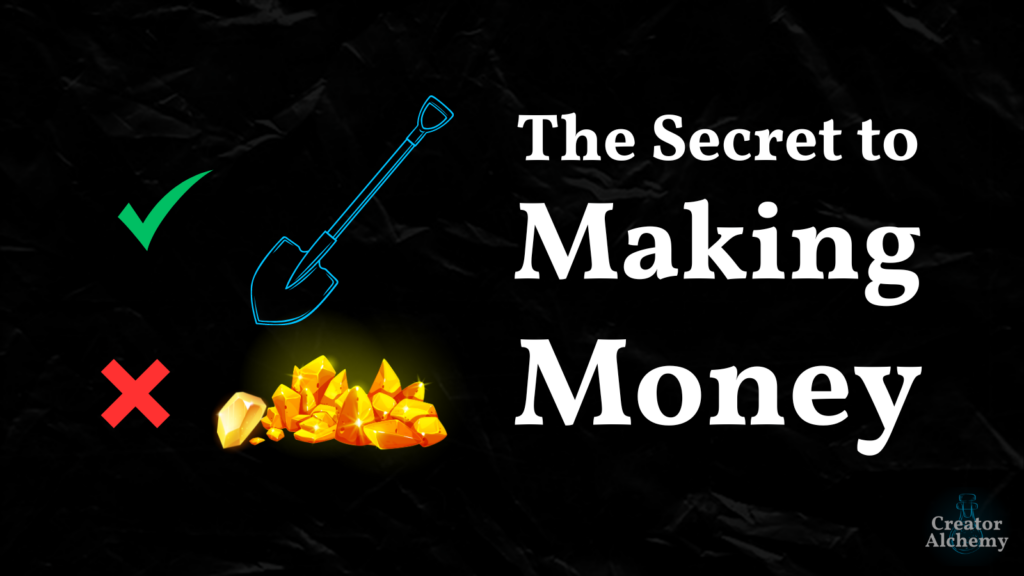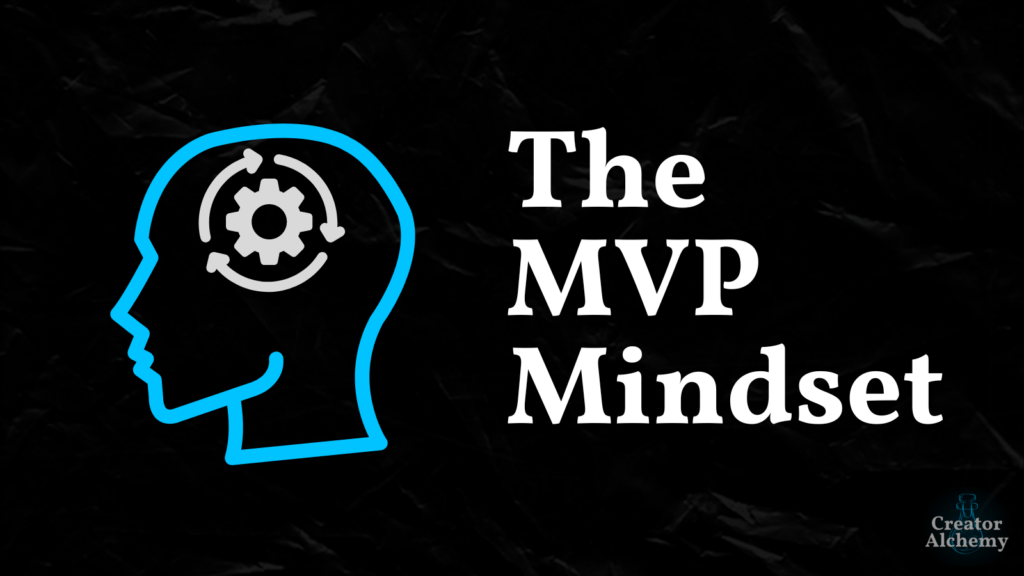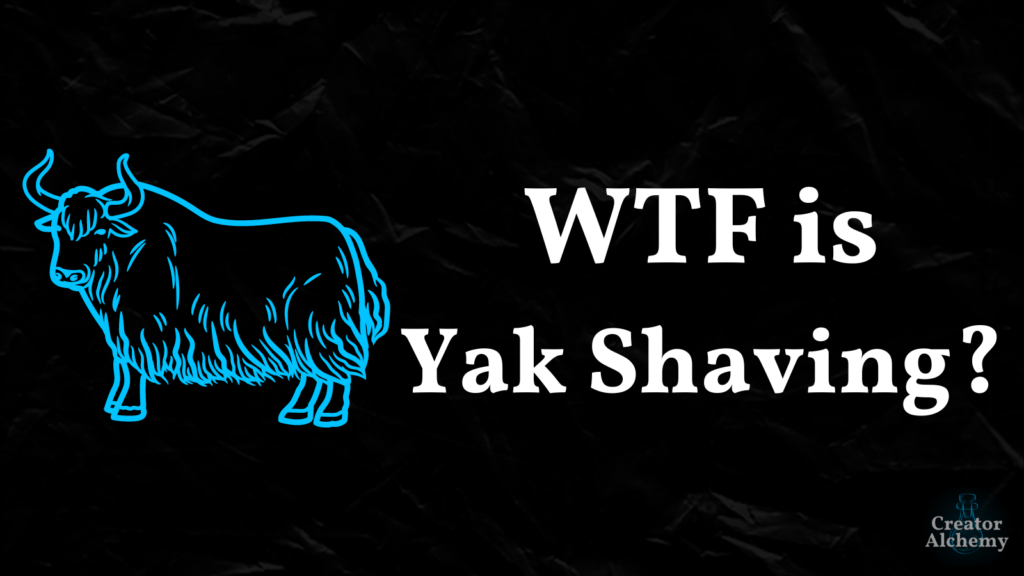How often do you think about building something, and then let fear stop you?
Fear of Failure is one of the 4 Horsemen of Fear—it whispers insecurities in our ear like:
- What if I’m not good enough?
- What if no one cares?
- What if it sucks?
But like all of the Horsemen, we’re not actually afraid of failing itself—we’re afraid of the unknown:
- What happens if I’m not good enough?
- What happens if no one cares?
- What happens if it sucks?
Well here’s the great news—failure often leads to success.
If you have the right mindset going into it.
Here’s what I mean…
•••
The Truth About Failure
“Don’t do their job for them.”
I had just gotten done telling my graduate supervisor I wasn’t going to apply to my dream doctoral programs because I didn’t think I was good enough to get in.
Typically, he was the jokester of the department—rarely did a serious word cross his lips.
But when I told him I wasn’t going to apply, an unfamiliar look washed over his face—dead seriousness.
“Don’t do their job for them. If they don’t want you, let them decide that. Your job is to apply. If you apply, you at least have a chance of getting in. But if you never apply, you’re guaranteed to not get in.”
I thought by avoiding putting myself out there I was avoiding failure.
Turns out, I was guaranteeing it.
See, there are two types of failure—the type you can turn into success and the type you can’t.
If I applied to programs and got rejected, I could learn from those failures—why I didn’t get in, what I needed to do differently, which programs weren’t a great fit, etc.
But if I didn’t apply, I’d never get that data to iterate on—so I would fail in a way I couldn’t turn into success in the future.
So I applied to a bunch of doctorate programs, and got rejected by the same number—for 3 years in a row.
But every time, I learned something that I applied to my next attempt.
I improved my grades and my application essays, and I bulked up my CV (like a resume).
Eventually, I got in.
I almost let Fear of Failure stop me—thankfully I had mentors who helped shape my mindset around failure.
But I’ve seen countless people let this fear stop them…
See, I deeply believe most people want to be creators or entrepreneurs in some capacity—because humans are wired to explore, create, and problem-solve—which is exactly what creators and entrepreneurs do on a daily basis.
But most people are so terrified of failure—and have so many other limiting beliefs—that they actively avoid risking failure when it comes to doing work that resonates with them.
So they take the safe route—get a standard degree in an in-demand field, get a stable job that slowly drains their soul, and spend 45+ years of their life coasting to retirement in the hopes they’ll eventually have the freedom to enjoy life.
But the very actions they take to avoid failure guarantee it.
Because they spend their lives wishing they had the courage or resources to do the work that resonates with them. Then they get to their deathbed and look back on a lifetime of regret—wishing they’d taken more chances and resenting how much they let bullshit fears stop them.
Since they didn’t build anything, they failed in a way that didn’t provide any lessons to turn into future successes—all they’re left with is regret.
But if they’d built something and failed, they could’ve learned from those failures and turned those lessons into future successes.
Here’s what I mean…
•••
The Power of a Portfolio of Failures
Most successful entrepreneurs fail at least 2-3 times.
Then the 4th thing they build is a huge success.
Why?
Because they applied what they learned building the first 2-3 failures.
But they couldn’t have learned those lessons without building the things that failed.
If they had let fear stop them from ever building, they wouldn’t have learned anything.
No failures —> No lessons —> No success
It’s ok if the first few things you build don’t succeed—because every time you build and fail, you learn valuable lessons you can apply to the next thing you build.
I’ve failed a ton over the last few years.
Paid Newsletter
When I collaborated with Tim Stoddart on a paid newsletter and course to help bootstrapped entrepreneurs build thriving businesses last year, it was a ton of fun.
But it failed.
After about a year, we spun it down.
But we both learned a ton of lessons we’ve each applied to our own businesses since. Tim’s built Copyblogger and the Copyblogger Academy into thriving businesses. And I learned valuable skills like copywriting, funnel building, and curriculum design that I applied to my own courses like Build an Intentional Life and World-Class Coaching. Plus, now we’re friends, which is dope.
Workshop Series
When I collaborated with two coach friends—Justin Mulvaney and Rikki Goldenberg—last year to do a workshop series to help entrepreneurs overcome limiting beliefs, do values-aligned work, and excel in their companies, it had huge potential.
But it failed.
We couldn’t get enough people to sign up, so we nixed it.
But we realized the topics we’d outlined for the series were worth sharing publicly and we learned how much we loved hanging out.
So we created the No Clear Answers podcast—the anti-guru podcast where we explore the common challenges we all face as creators, leaders, and people. And the response from listeners has been awesome.
Startup App
A few years ago, I was approached to collaborate on a startup app to help people develop better habits.
I knew nothing about how volatile startups are, so I thought it was going to change my life—I would be one of the first coaches to develop courses for the app, so it had huge financial potential.
So I designed what I thought was an awesome course to help people develop powerful habits to help them excel in life and business.
But it failed.
After about a month, they spun down the company—and no one ever saw the course I made.
But I learned how to put myself and my work out there, I learned camera confidence making the videos, and realized how much I love teaching.
So I took those lessons and started publishing my own content and courses.
•••
How to Turn Failure into Success
Even though I built multiple “failures,” I learned lessons I could’ve only learned by building and failing.
And I took those lessons and built my current business.
Every failure is a brick in the foundation of your future success.
If you learn how to take these lessons from failure.
Here are some questions to reflect on that help me turn failures into successes:
- What contributed to the failure?
- How am I different now than before I built it?
- What did I learn through the process of building?
- Who did I meet along the way that I can collaborate with in the future?
- What new insights have I gained that I can apply to the next thing I build?
- What one tweak could I have made that could’ve turned that failure into a success?
Then I consider how I can take these lessons and apply them to the next thing I want to build (or what I’m currently building).
This isn’t some “look for the silver lining” bullshit—it’s about actively shifting your perspective and choosing to learn from what’s already happened so you can shape your future.
When most people experience failure, the only thing they take away from the experience is the reality that failure is possible—so they never attempt anything again.
But you have the power to choose to learn from failure and apply those lessons to set yourself up for success in the future.

Bonus Visual:
Above is my attempt to visualize the idea of turning failures into success.
Below is my friend PJ Milani’s (much better) version he made after I sent him my atrocious attempt:

Check out more of PJ’s work here. It’s awesome.
•••
Final Thoughts
If you let Fear of Failure stop you from building, you’ll never learn, you’ll never improve, and you’ll never share your unique value with the world.
So reconsider those questions from earlier:
- What happens if I’m not good enough? Through building and failing, you’ll get better.
- What happens if no one cares? Through building and failing, you’ll find people who do care and create something they love.
- What happens if it sucks? Through building and failing, you’ll make the next version better.
But you’ll only become great and make great things through building and failing.
Failure isn’t worth fearing.
The only thing worth fearing is not living up to our potential.
So build the damn thing.
Fail.
Learn.
Fail again.
Learn again.
Over and over.
That’s how you succeed.



